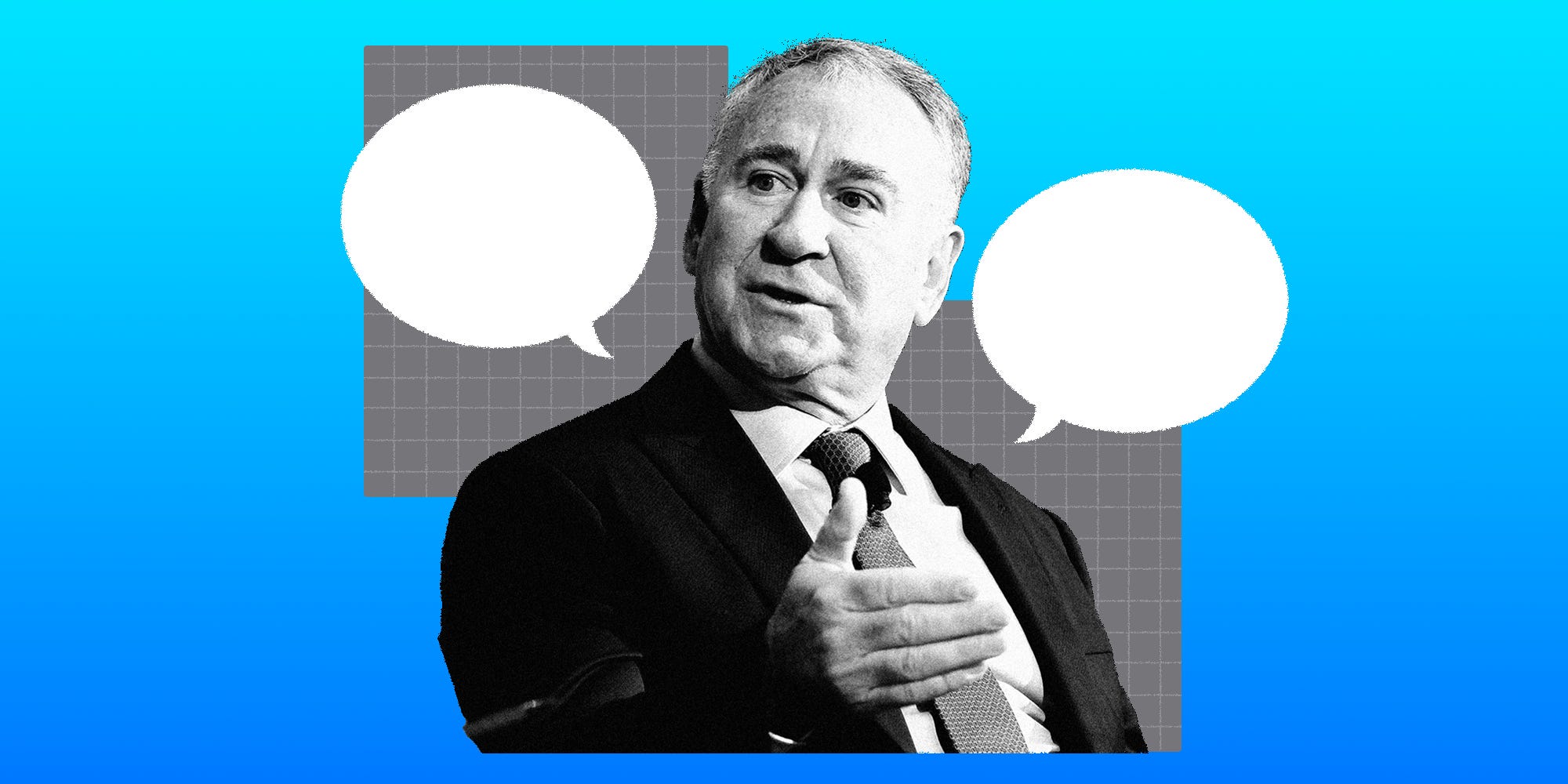
Bethany Clarke/Getty Images
Welcome back to our Sunday edition, where we round up some of our top stories and take you inside our newsroom. Bringing a Stanley tumbler to the office could date you. Morgan Stanley surveyed more than 500 of its interns to see what brands the younger cohort is buying. The results are a window into Gen Z’s tastes. Their preferences for clothing, shoes, and cars might surprise you.
On the agenda today:
- Locals can live on this Hawaiian island rent-free — as long as they play by the owner’s rules.
- Meta Superintelligence Labs is already losing key staff.
- Gen Z wants to get rich quick. Some are finding it by selling insurance.
- How Ken Griffin is building his legacy beyond Citadel.
But first: It no longer pays to be loyal.
If this was forwarded to you, sign up here. Download Business Insider’s app here.
This week’s dispatch
A relic of the past

Getty Images; Tyler Le/BI
Loyalty really is dead.
We’ve written a lot about how workplace loyalty has vanished, with AT&T CEO John Stankey all but rubber-stamping the moment in a viral memo this month.
Now, as my colleague Emily Stewart wrote the other day, customer loyalty is dead, too.
Company loyalty programs are actually costing you a lot of money. That’s because shoppers who stick with their favorite brands just aren’t being rewarded the way they used to be. She called customer loyalty “a sham.”
Airlines, internet providers, and banks do a good job of luring in newcomers with flashy deals, while longtime customers quietly pay more. As a result, frequent flyer miles buy less, internet bills creep up after promo rates, and credit card rewards shrink in value.
The parallels are striking. In both work and shopping, institutions that once cultivated long-term relationships now treat loyalty as weakness. Customers are taken for granted; workers are told they’re expendable.
Companies know inertia keeps people stuck, whether it’s the pain of job hunting or the annoyance of switching cell carriers. Switching is a hassle and isn’t easy.
In Stankey’s corporate culture memo, he said AT&T employees shouldn’t expect promotions based on tenure. The company is shifting from a “familial” culture, one that coddles its employees, to a “market-based” one that emphasizes performance.
In a recent CNBC interview, Stankey said he wasn’t sure why his memo went viral. But he added that it has spurred “the right kind of dialogue” within AT&T and that it was “very well understood within the business.”
The upshot: Loyalty just doesn’t have the prestige it once did. For workers, that means potentially being ready to walk for greener pastures. For customers, it means negotiating bills, shopping around, and ditching brands that exploit complacency.
Whether it’s your employer or your favorite brand, perhaps the lesson is: If they’re not loyal to you, why should you be loyal to them?
Living rent-free in paradise

Lila Lee for BI
On the “Forbidden Island” of Niihau, generations of Native Hawaiians have preserved a culture largely untouched by 20th and 21st century development. They live rent-free as invited guests of the island’s owners, the Robinsons, who are some of the largest landowners in the state.
There’s a catch, though. Niihauans can stay on the island as long as they observe the Robinsons’ old-world rules. Getting tattoos, drinking alcohol, or having long hair are considered offenses — and can get them kicked off the island forever.
“Everything is funnelled through the Robinsons.”
Meta’s bleeding talent

Andrej Sokolow/picture alliance via Getty Images
Less than two months after the establishment of Meta Superintelligence Labs, Meta’s AI unit has already lost eight employees, BI exclusively reports. These include researchers, engineers, and a senior product leader.
Most of the recently departed had been with the company for years, a Meta spokesperson said, although some recent Meta hires left, too. One former employee told BI that some at Meta AI felt that work was unstable at times because of constant reorganizations.
Your next real estate agent might be a teenager

Getty Images; Alyssa Powell/BI
Gen Zers are changing the definition of an aspirational career. Instead of pursuing a four-year college degree and working a 9-to-5, some are turning to blue-collar work, influencing, or licensed white-collar professions, like real estate or insurance.
Several Gen Zers told BI’s Amanda Hoover they find the appeal in working in real estate because there’s no ceiling on what they can earn. Plus, autonomy is huge. A big draw to this career is that the younger generation gets to be their own boss.
Ken Griffin’s vision for America

Kayla Bartkowski/Getty; Tyler Le/BI
Those close to Griffin say he hasn’t sought out more publicity in recent years. But the billionaire founder of Citadel and Citadel Securities has a bigger profile than ever.
His increased political clout, thanks to his ever-expanding wealth, has given his words more oomph. Griffin is also using his foundation, Griffin Catalyst, to lay out his priorities and shape the country.
This week’s quote:
“That could play into things where, why am I paying $25 for a burrito and chips and guac when I could pay maybe a little bit more and have full service?”
— Alex Fascino, senior equity research analyst at CFRA Research, on restaurants like Olive Garden offering more value to customers than a fast-casual restaurant like Cava.
More of this week’s top reads:
- Exclusive: Amazon has mostly sat out the AI talent war. This internal document reveals why.
- Five biggest takeaways from Nvidia’s Q2 earnings call.
- “Don’t ask, don’t tell”: How Hollywood is using AI on the hush.
- MrBeast tries to cut down on his massive spending without killing the magic.
- In staff all-hands meeting, Google highlights how many managers it has cut to be more efficient.
- Worried about Trump’s attacks on the Fed? Watch these 3 market signals.
- Labubus are a billion-dollar bubble ready to burst.
-
Uber now allows you to pay with cash. Drivers worry that it will lead to awkward moments or make them theft targets.
The BI Today team: Steve Russolillo, chief news editor, in New York. Lisa Ryan, executive editor, in New York. Akin Oyedele, deputy editor, in New York. Grace Lett, editor, in New York. Amanda Yen, associate editor, in New York.
The post It’s not just the workplace. Loyalty is becoming a thing of the past. appeared first on Business Insider.




